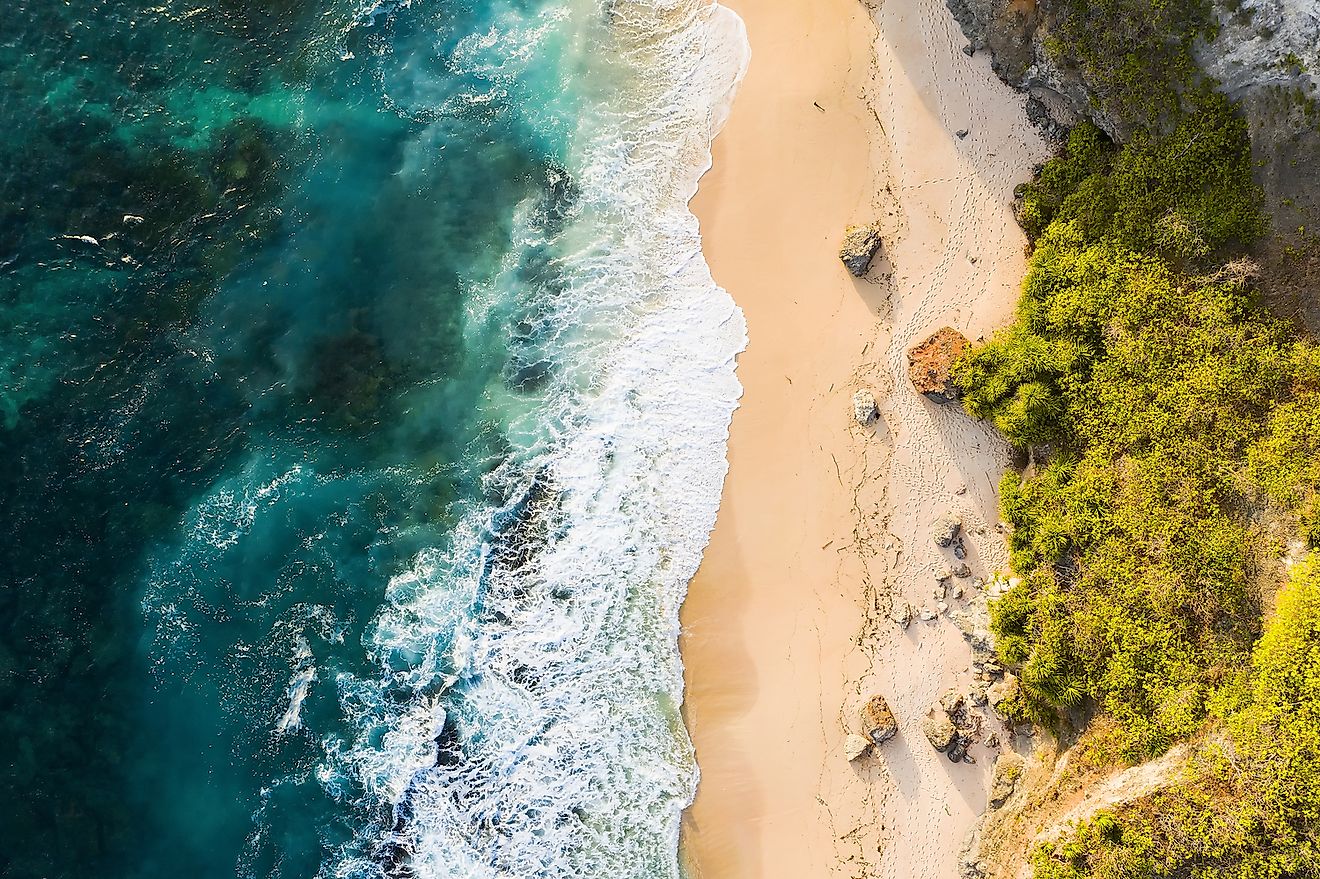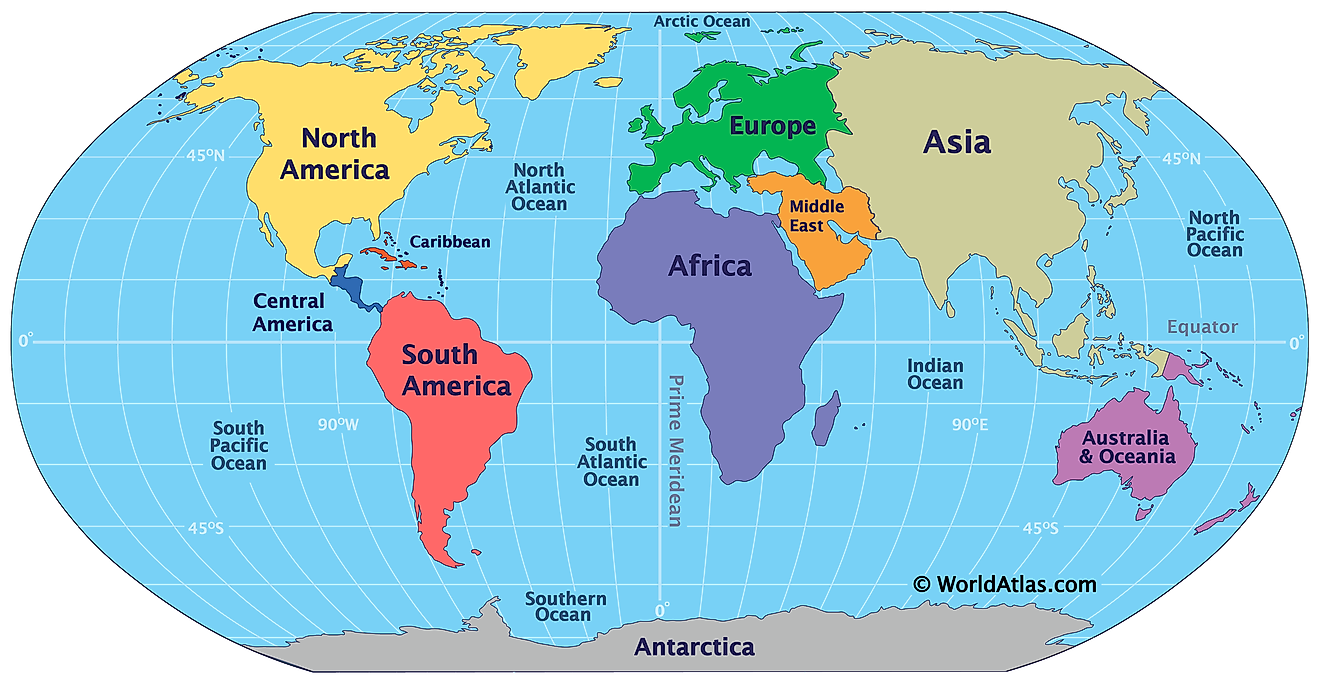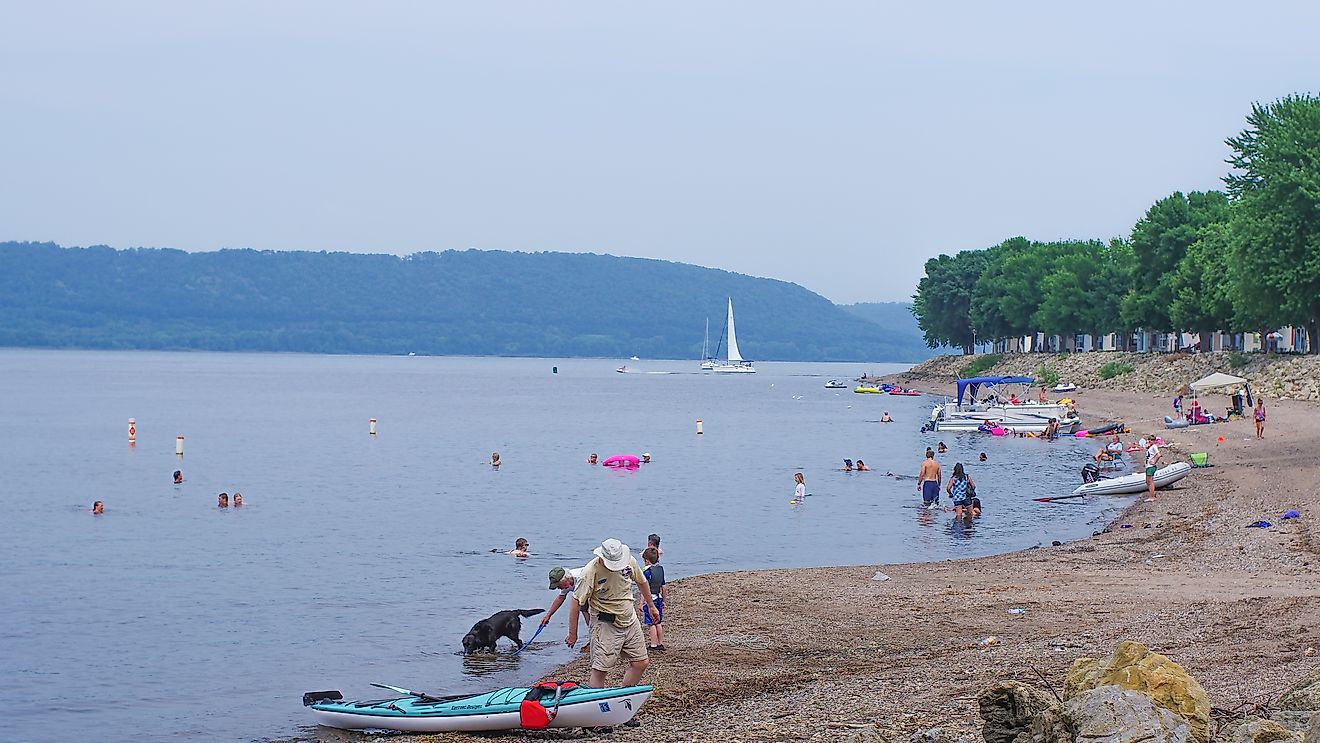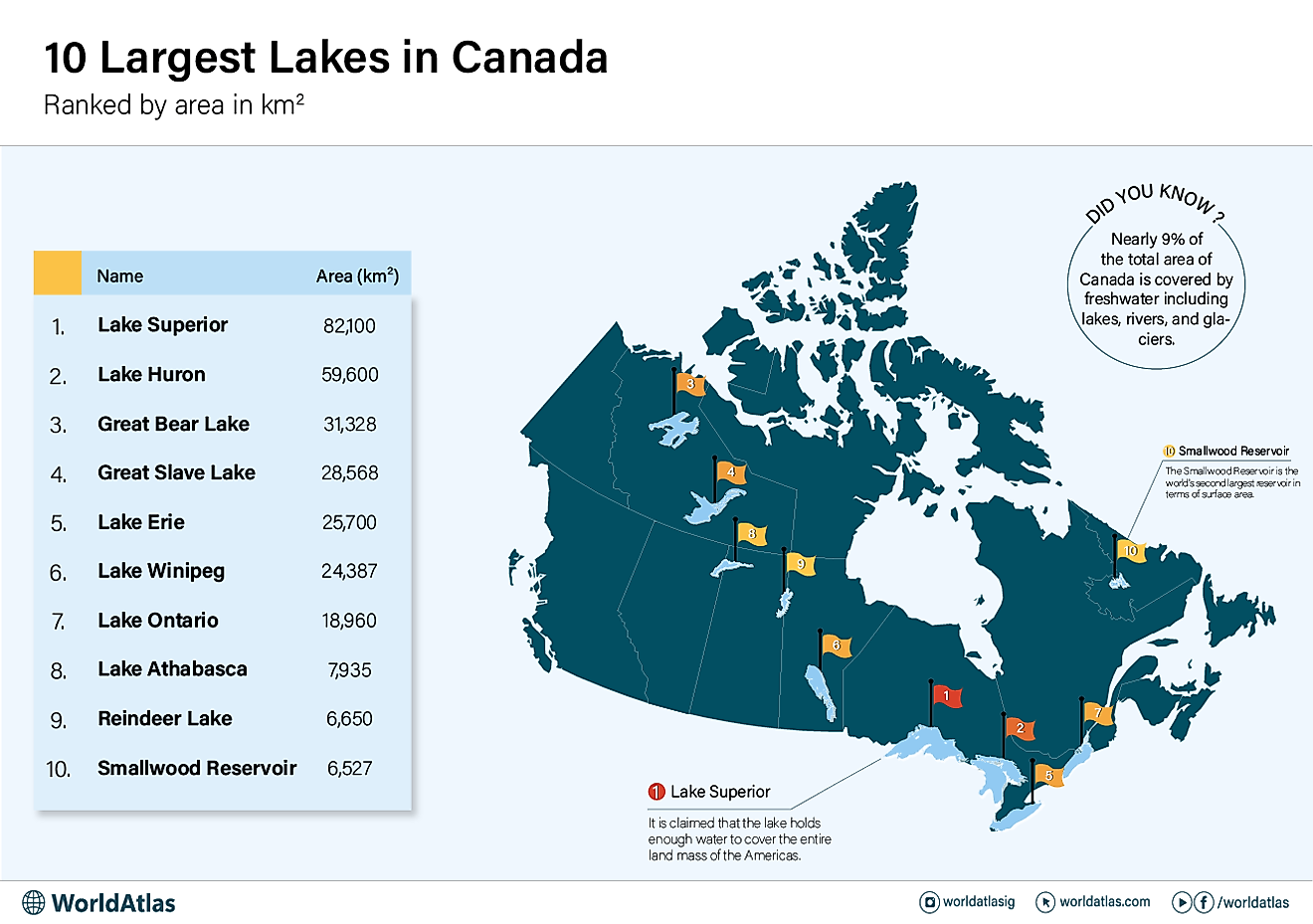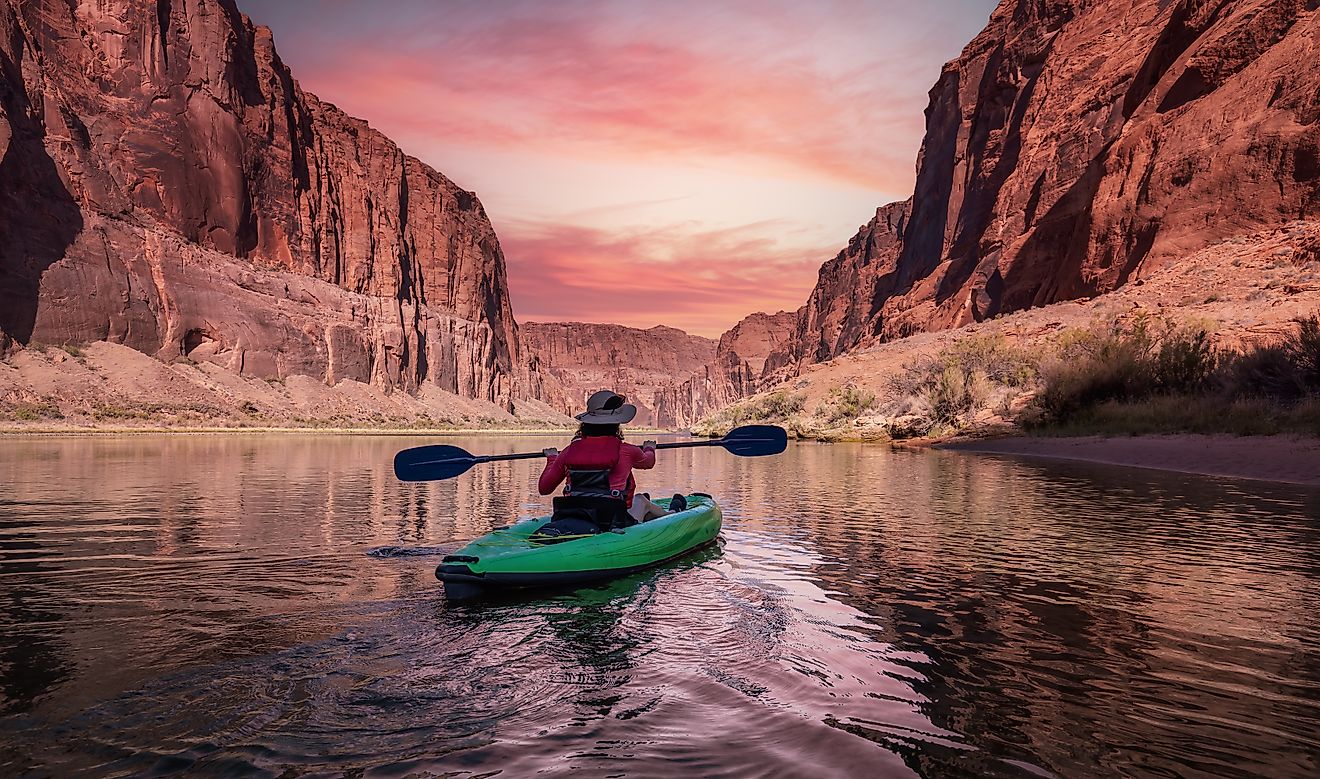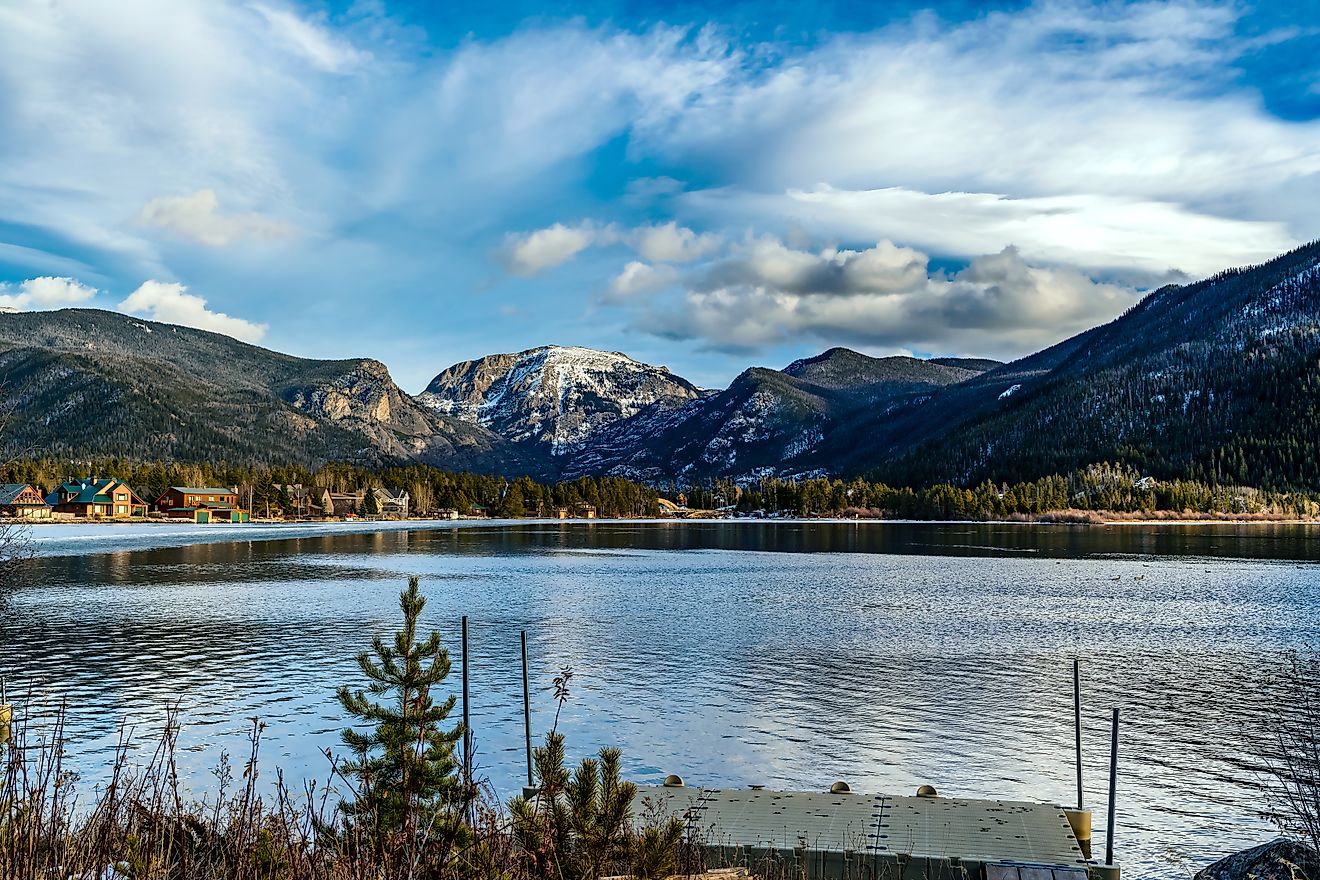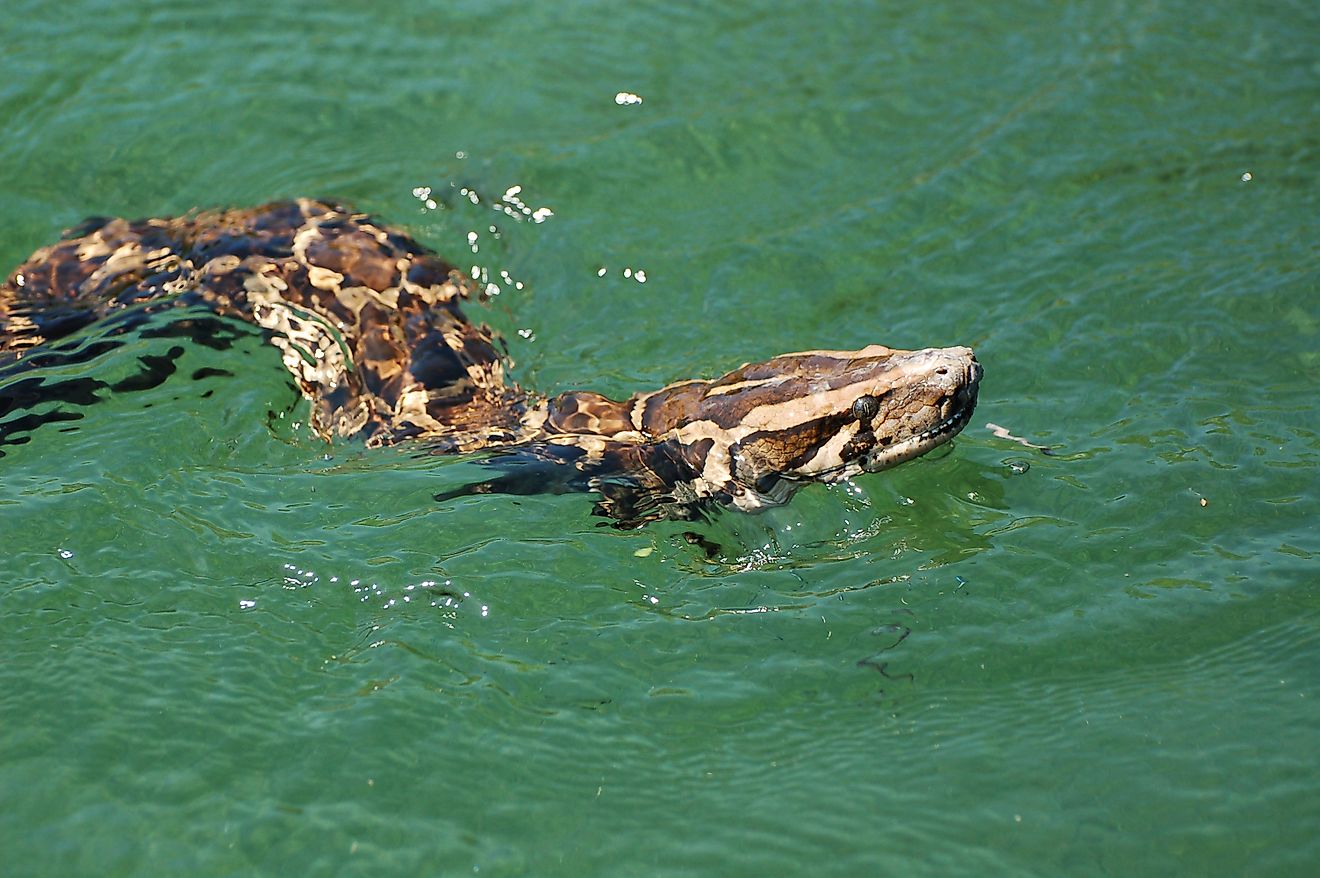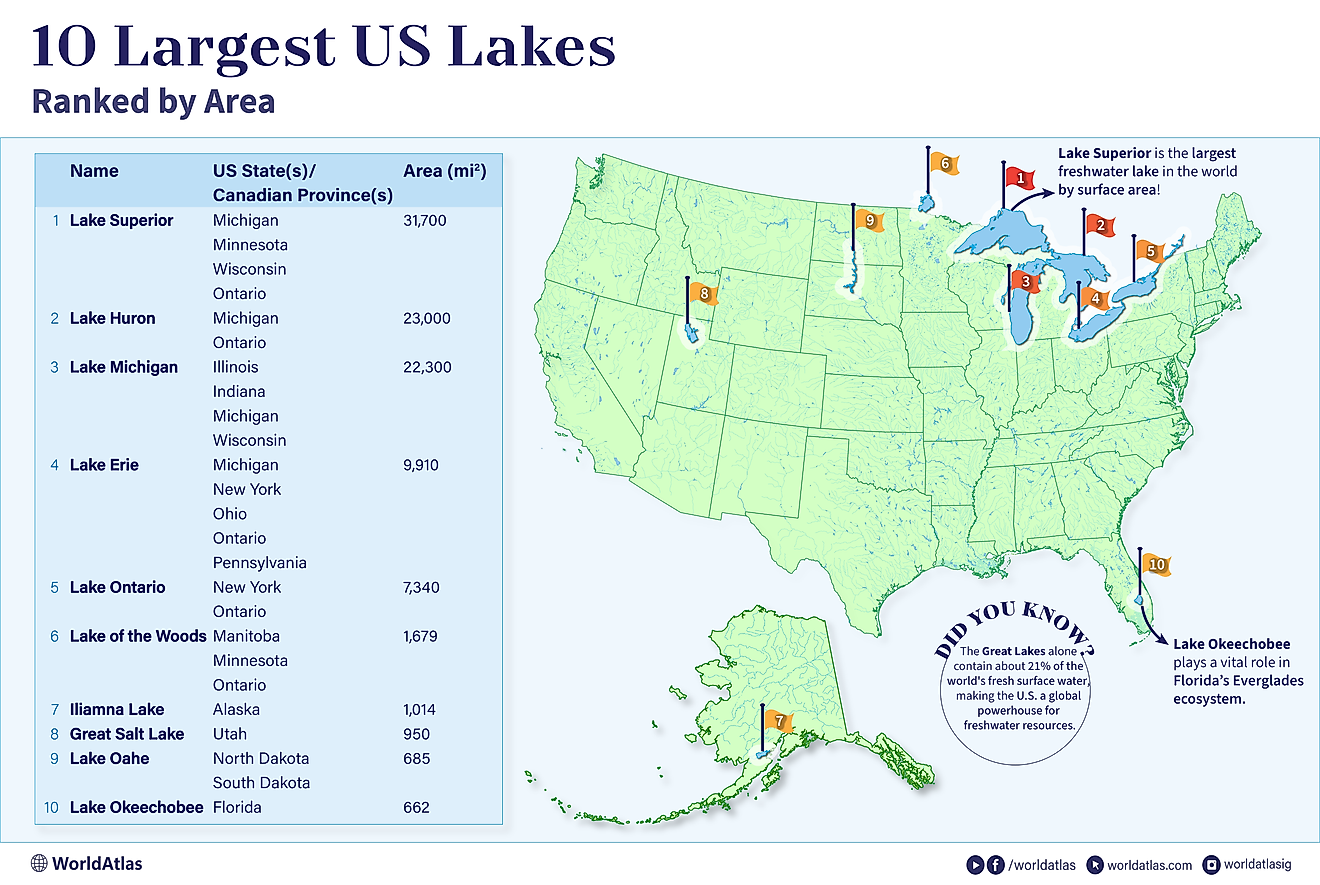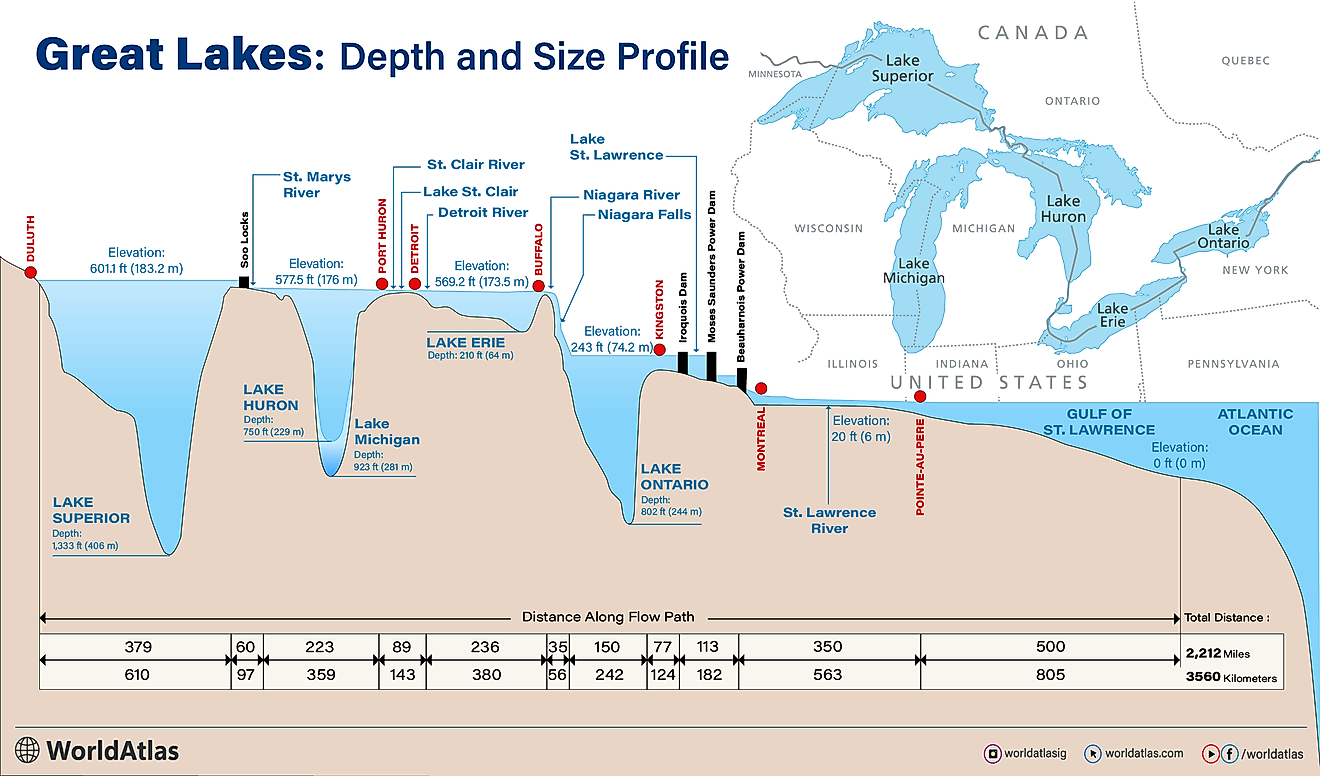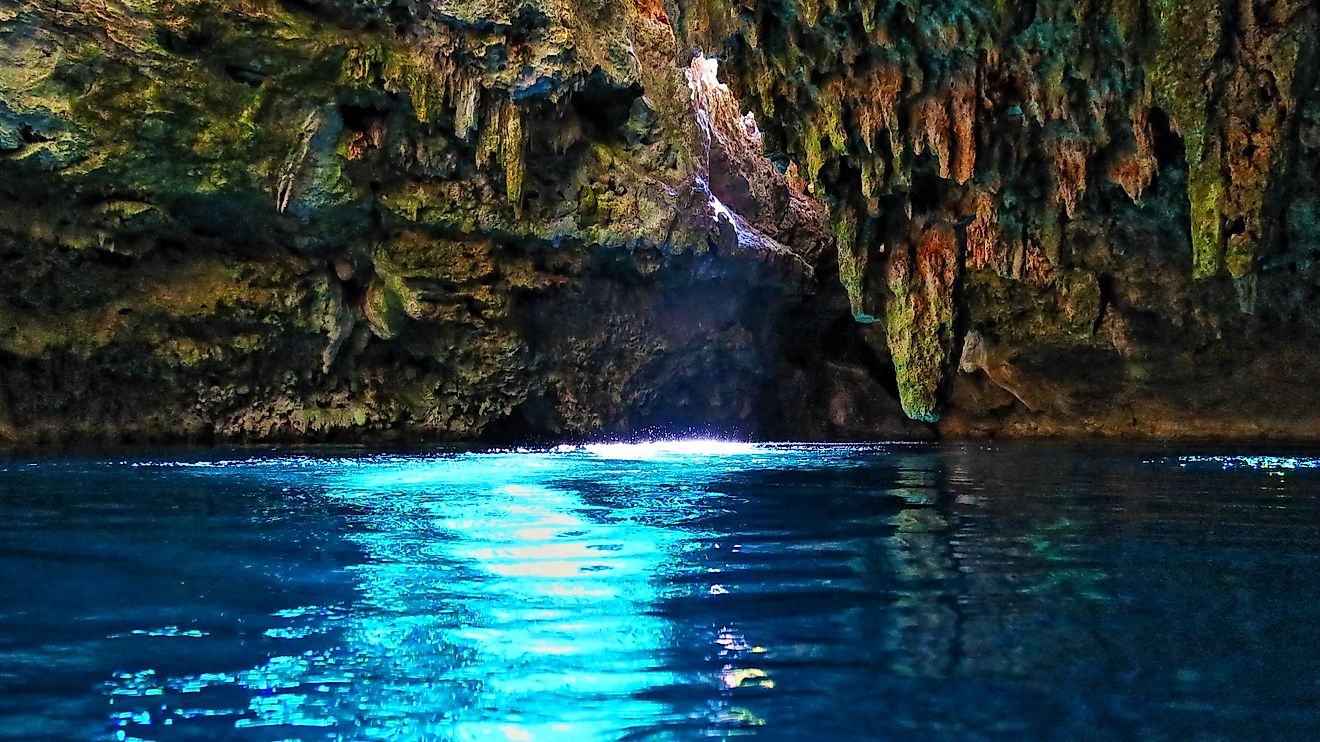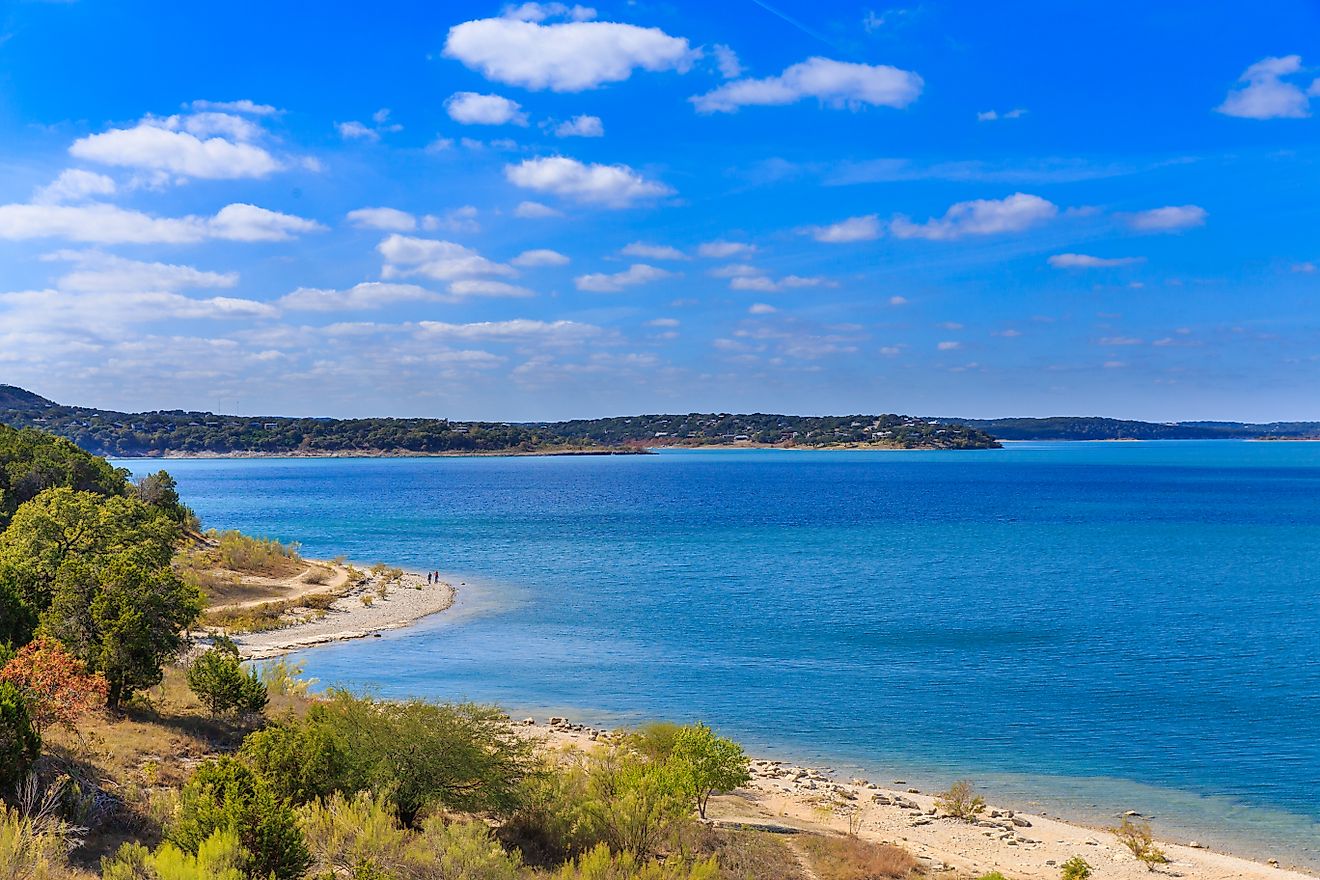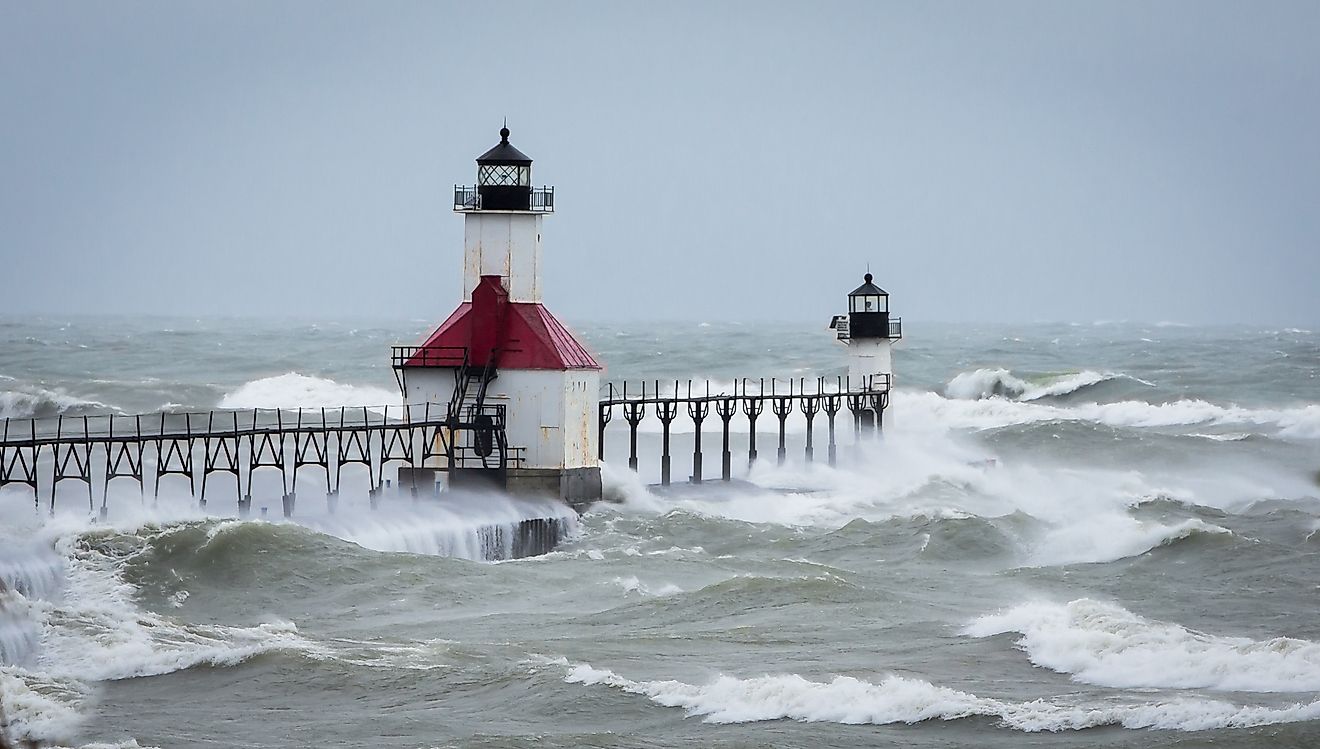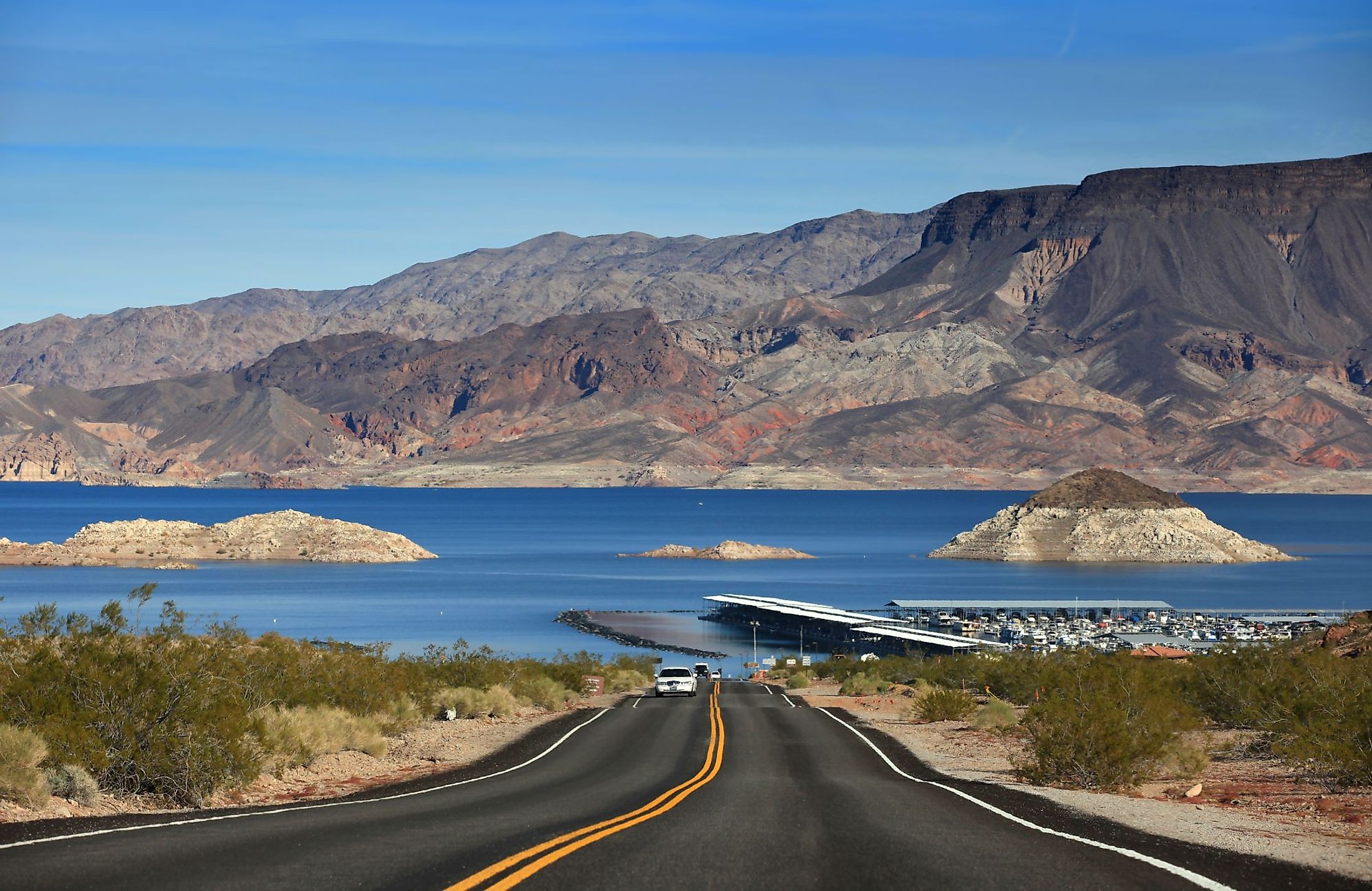
Lake Mead
Lake Mead is a big artificial reservoir that has been created due to the damming of the Colorado River by Hoover Dam. Considered the largest reservoir in the United States, Lake Mead is situated on the boundary between Arizona and Nevada, extending into Arizona's Mohave County and Nevada's Clark County, approximately 39 km east of Las Vegas. The Lake Mead National Recreation Area is a sprawling 1.5 million-acre recreational area, which serves as a popular destination for recreational activities such as fishing, boating, swimming, and camping. Besides this, Lake Mead also provides water for irrigation, hydroelectric power generation, and for various household uses to over 20 million people residing in Nevada, Arizona, California, and portions of Mexico.
About Lake Mead
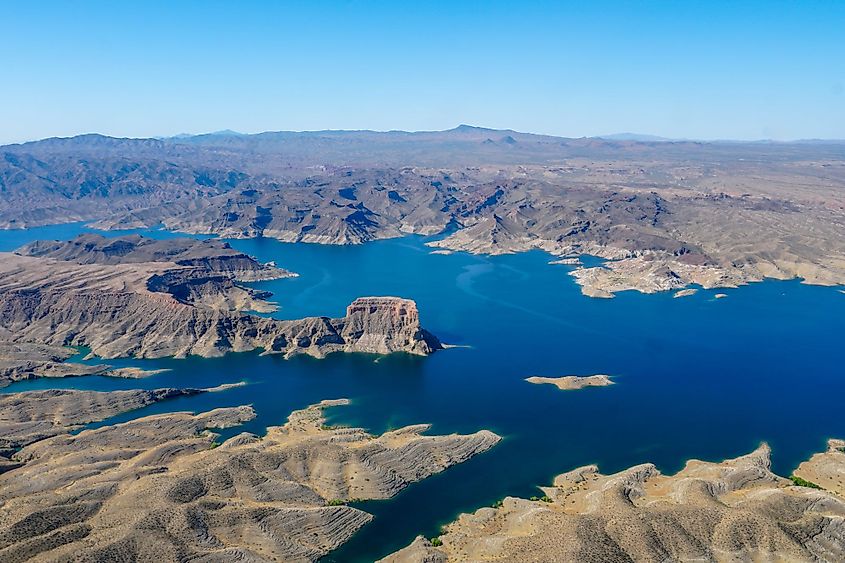
At full capacity, Lake Mead is approximately 180 km in length, and reaches a maximum depth of 162 m. Placed at a surface elevation of 375 m above sea level, the lake covers a surface area of 640 sq.km, holding a water volume of 28.23 million acre-feet. The lake is further divided into several basins. These include: the Boulder Basin, the largest basin in Lake Mead situated close to Hoover Dam. The Boulder Basin is linked to the Virgin Basin by a narrow channel referred to as "The Narrows." The other two basins of the lake, Temple Basin and Gregg Basin are linked by the Virgin Canyon. The lake is surrounded by stunning desert landscapes, canyons and many serrated mountain ranges. The lake is located in a region of the Mojave Desert, and the nearby landscape is home to a variety of wildlife.
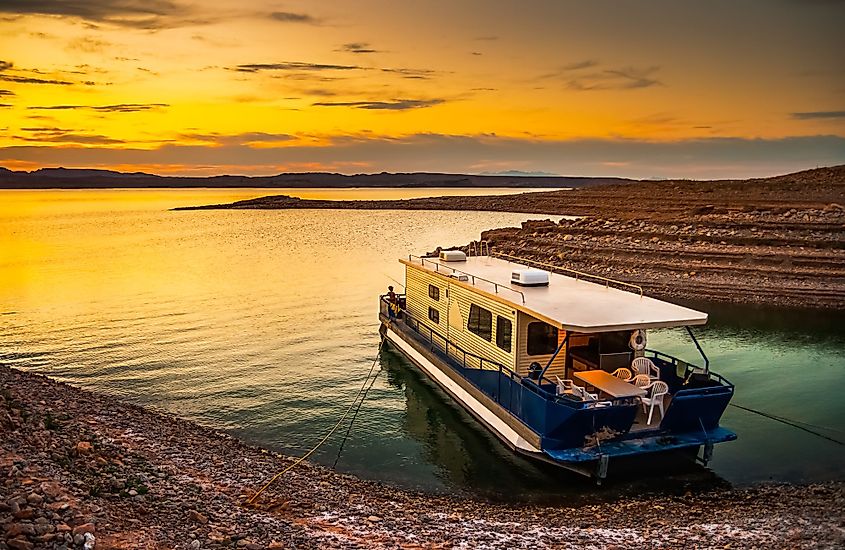
A significant portion of Lake Mead's water comes from the Rocky Mountains snowmelt and runoff from Colorado, Wyoming and Utah. The Glen Canyon Dam releases 8.23 million-acre feet of water, while the Hoover Dam releases 9 million-acre feet of water annually to Lake Mead. However, in recent years, due to several factors like the increase in demand for water, reduced snowmelt runoff, high evaporation, changing rainfall patterns, cliamte change, prolonged drought, etc, have led to reduction in the lake's water levels. Recently, Lake Mead reached its lowest water level since the construction of the Hoover Dam in the 1930s. Many scientists are concerned that the prolonged drought could signify that the region will face significant water supply challenges due to climate change.
History Of Lake Mead
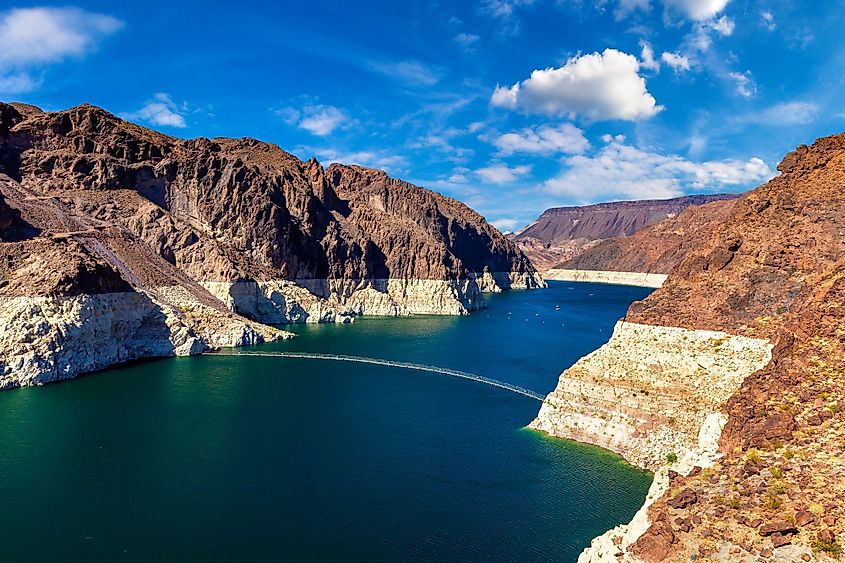
Lake Mead was created in September 1935 by the massive Hoover Dam on the Colorado River. The dam was built to control flooding, generate hydroelectric power, and provide water for the growing populations of Arizona and Nevada. The lake was named after Elwood Mead, the architect of the dam. The lake quickly became a popular destination for recreational activities. The U.S. Navy also used the lake for testing new boats and equipment. The lake experienced a surge in popularity after the opening of the nearby Las Vegas Strip in the 1950s. In 1964, the lake was officially designated as a National Recreation Area by President Lyndon B. Johnson. The National Park Service manages the Lake Mead National Recreation Area, which has become a popular destination for tourists and locals.
Ecology Of Lake Mead
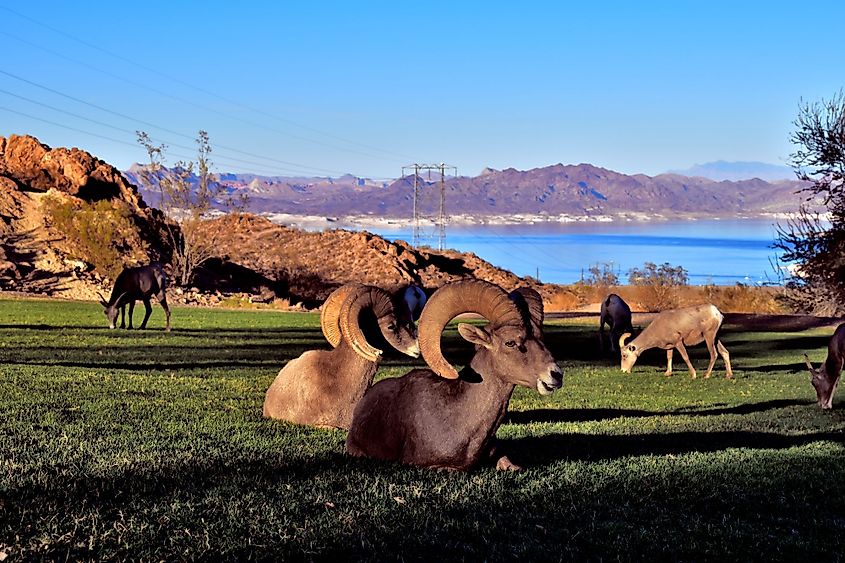
Lake Mead is home to a variety of wildlife, including several species of fish, birds, reptiles, and mammals. The lake is stocked with a variety of fish, including bass, catfish, and more. The lake is also home to many birds, including bald eagles, as well as various reptiles, such as lizards and rattlesnakes. Lake Mead supports a variety of plants, from desert cacti to lush greenery along the banks of the lake. The lake is an important habitat for many species of plants, including cacti, creosote, and Joshua trees. The lake hosts various shrubs and wildflowers, including desert primrose, yucca, and desert marigold.
Recreational Activities At Lake Mead
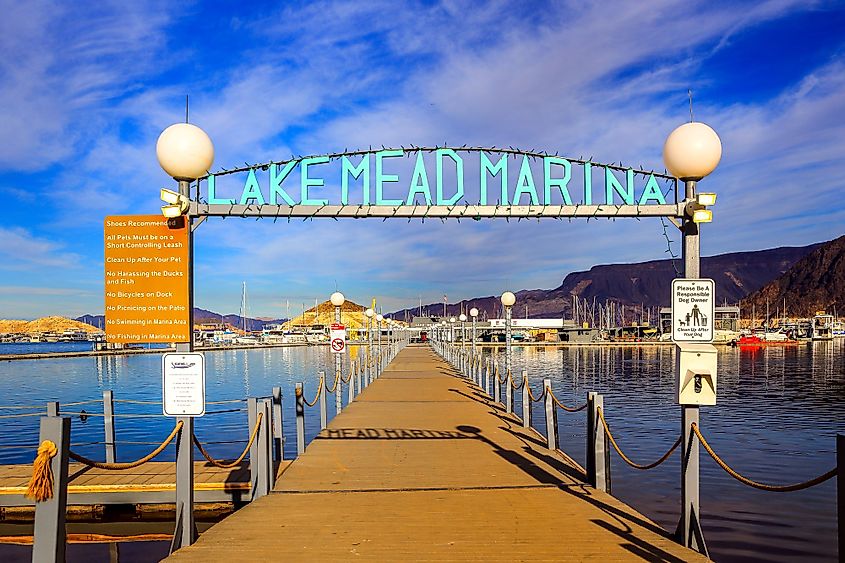
Lake Mead is a popular destination for recreational activities, including fishing, boating, swimming, and camping. The lake is home to several marinas, where visitors can rent boats, kayaks, and other watercraft. Visitors can also explore the lake on guided tours or take a self-guided tour of the lake. Lake Mead hosts a variety of events and festivals throughout the year, including fishing tournaments, boat shows, several music festivals, and a variety of art festivals.
The lake area also hosts various family-friendly events, such as the Fourth of July Celebration, the Las Vegas Boat Parade, and the Las Vegas Water Parade. The lake is also home to hiking and biking trails, allowing visitors to explore the surrounding landscape. Visitors can also explore the nearby Hoover Dam and take a tour to learn about the dam's history and about Lake Mead.
